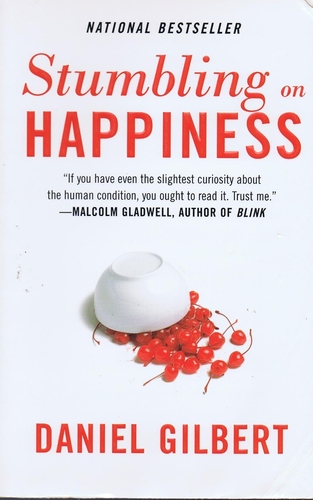A fantastic discussion about the meaning of life. It says, in better words, what I’ve attempted to get across on this site about the meaning of life as an atheist. Worth listening to, especially if you struggle with this issue.
Category Archives: Interesting
Ways That Statistics Can Lie To Us
I found this interesting and I laughed out loud while reading it. A great combination!
Amazing Time-Lapse Video
You have to watch this in full-screen and HD. Turn up the volume and enjoy!
via io9
Cognitive Biases
Came across this today and thought I’d share it here:
The 12 Cognitive Biases That Prevent You From Being Rational
The Little Guide to Contentedness
As you start your weekend you might want to keep some of the things in this blog post in mind:
The Brain and the Law
How will we handle criminals as we learn more about the brain? I was discussing this issue with my husband the other day so I was thrilled to come across this video. It’s 34 minutes long but well worth watching if this topic interests you (and it should!)
Stumbling on Happiness
Just read this book and absolutely loved it. Had to recommend it to you.
Found this great review on amazon.com:
Here is a review from Malcolm Gladwell, the author of bestselling books Blink and The Tipping Point, and is a staff writer for The New Yorker.
Several years ago, on a flight from New York to California, I had the good fortune to sit next to a psychologist named Dan Gilbert. He had a shiny bald head, an irrepressible good humor, and we talked (or, more accurately, he talked) from at least the Hudson to the Rockies–and I was completely charmed. He had the wonderful quality many academics have–which is that he was interested in the kinds of questions that all of us care about but never have the time or opportunity to explore. He had also had a quality that is rare among academics. He had the ability to translate his work for people who were outside his world.
Now Gilbert has written a book about his psychological research. It is called Stumbling on Happiness, and reading it reminded me of that plane ride long ago. It is a delight to read. Gilbert is charming and funnyand has a rare gift for making very complicated ideas come alive.
Stumbling on Happinessis a book about a very simple but powerful idea. What distinguishes us as human beings from other animals is our ability to predict the future–or rather, our interest in predicting the future. We spend a great deal of our waking life imagining what it would be like to be this way or that way, or to do this or that, or taste or buy or experience some state or feeling or thing. We do that for good reasons: it is what allows us to shape our life. And it is by trying to exert some control over our futures that we attempt to be happy. But by any objective measure, we are really bad at that predictive function. We’re terrible at knowing how we will feel a day or a month or year from now, and even worse at knowing what will and will not bring us that cherished happiness. Gilbert sets out to figure what that’s so: why we are so terrible at something that would seem to be so extraordinarily important?
In making his case, Gilbert walks us through a series of fascinating–and in some ways troubling–facts about the way our minds work. In particular, Gilbert is interested in delineating the shortcomings of imagination. We’re far too accepting of the conclusions of our imaginations. Our imaginations aren’t particularly imaginative. Our imaginations are really bad at telling us how we will think when the future finally comes. And our personal experiences aren’t nearly as good at correcting these errors as we might think.
I suppose that I really should go on at this point, and talk in more detail about what Gilbert means by that–and how his argument unfolds. But I feel like that might ruin the experience of reading Stumbling on Happiness. This is a psychological detective story about one of the great mysteries of our lives. If you have even the slightest curiosity about the human condition, you ought to read it. Trust me. —Malcolm Gladwell
Atheists/Agnostics and Compassion
I’d love to hear your thoughts on these findings:
Religious People Less Driven by Compassion Than Are Atheists and Agnostics, Study Says
via The Good Atheist on Facebook
see also: http://thegoodatheist.com/
Do Not Doubt
Religious Survey in Canada
I have to say, I felt there was a difference here in Canada regarding our views about religion, but it’s interesting to see it showing up in surveys like this one:
Just my personal experience, but it seems to me that Canadians don’t care much if you’re religious or not – the topic rarely even comes up. I think religion is one of those things we figure should stay in the realm of ‘it’s your own personal business.’
Instead of me pulling out numbers from the survey that caught my attention, I’d be really interested to know what those of you who live outside of Canada think of the numbers. Did any of the numbers surprise you?
[Here’s more reading on the topic of religious belief in Canada if you’re interested. It’s not regarding the above survey though.]

